Top 10 Health Benefits of Cherimoya
Cherimoya is a round, green fruit with leathery skin and creamy, sweet flesh. It is said to have originated in South America's Andes highlands, although it is ... read more...now grown in tropical places with high elevations. Cherimoya is also known as custard apple due to its creamy texture. It has a sweet flavor that is comparable to that of other tropical fruits like bananas and pineapple. Let's look at the best cherimoya health advantages.
-
Cherimoya is high in antioxidants, which help your body combat free radicals. High quantities of free radicals can lead to oxidative stress, which has been linked to a variety of chronic diseases, including cancer and heart disease. Certain cherimoya components, such as kaurenoic acid, flavonoids, carotenoids, and vitamin C, have potent antioxidant properties. According to one test-tube research, both the peel and pulp are high in antioxidants, with chemicals in the peel being more efficient in preventing oxidative damage.
However, due to health concerns, you should avoid eating the cherimoya peel. This is detailed further down. The carotenoid antioxidants in cherimoya, such as lutein, may be particularly potent. According to research, meals high in carotenoids may improve eye health and lower your risk of heart disease and some malignancies.
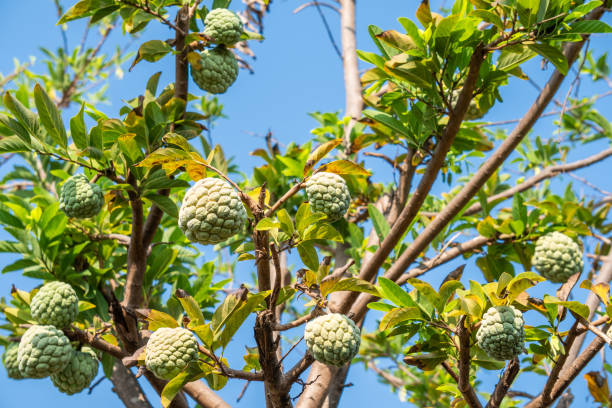
High in antioxidants 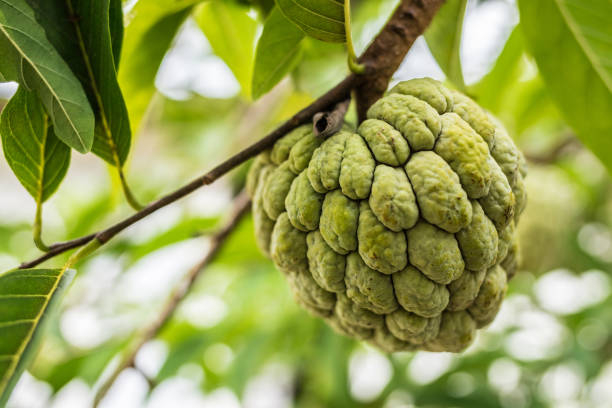
High in antioxidants -
Cherimoya is a good source of vitamin B6 (pyridoxine). In fact, one cup (160 grams) of the fruit contains 24 percent of the RDA (RDI). Vitamin B6 is required for the production of neurotransmitters such as serotonin and dopamine, which help control your mood.
This vitamin deficiency may lead to mental problems. In fact, low vitamin B6 levels in the blood have been related to depression, particularly in older persons. In one research of elderly persons, vitamin B6 deficiency was shown to double the risk of depression. Eating foods like cherimoya may help minimize your risk of depression caused by vitamin B6 deficiency by increasing your levels of this vital nutrient.
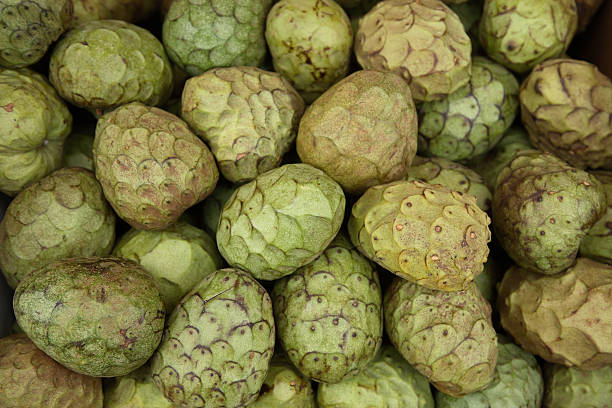
May boost your mood 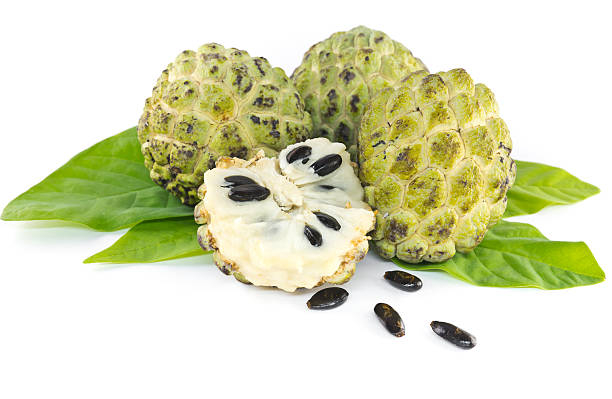
May boost your mood -
Cherimoya is high in the carotenoid antioxidant lutein, which is one of the key antioxidants in your eyes that combat free radicals to keep your vision healthy. Several studies link increased lutein consumption to good eye health and a decreased risk of age-related macular degeneration (AMD), a disorder characterized by eye damage and visual loss. Lutein may help protect against other eye problems, such as cataracts, a clouding of the eye that causes impaired vision and vision loss.
A meta-analysis of eight studies indicated that those with the highest lutein levels in their blood had a 27% reduced chance of getting cataracts than those with the lowest levels. As a result, eating lutein-rich foods like cherimoya may benefit eye health and lower the risk of disorders like AMD and cataracts.
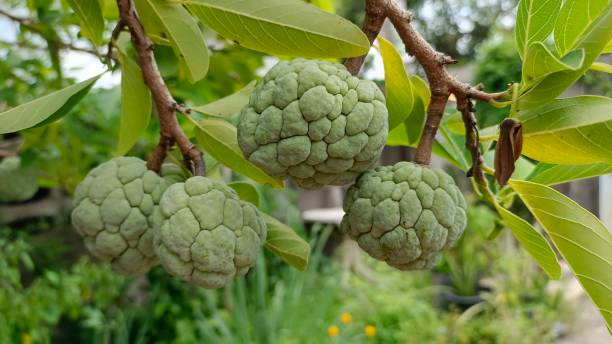
May benefit eye health 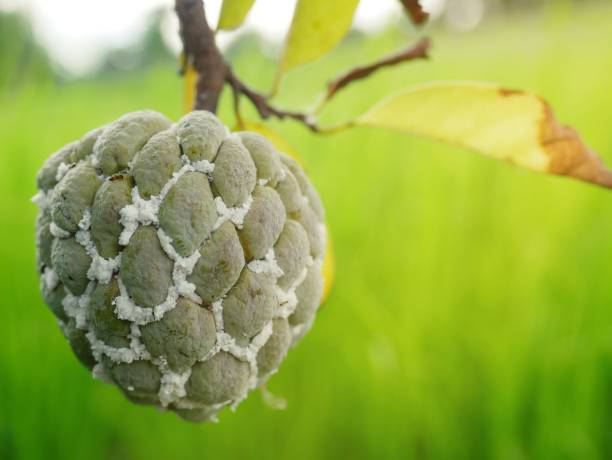
May benefit eye health -
Cherimoya is abundant in potassium and magnesium, two elements that assist control blood pressure. Notably, 1 cup (160 grams) of the fruit contains 10% of the RDI for potassium and more than 6% of the RDI for magnesium. Potassium and magnesium both stimulate blood vessel dilatation, which lowers blood pressure. High blood pressure may raise your chances of developing heart disease or having a stroke.
According to one study, taking the DV for potassium — 4,700 mg per day — can lower systolic and diastolic blood pressure by around 8 and 4 mm Hg, respectively. When comparing persons with the highest magnesium intake to those with the lowest intake, another study discovered an inverse association between magnesium consumption and risk of high blood pressure. Each additional 100 mg of magnesium consumed per day was related to a 5% decreased risk of high blood pressure.
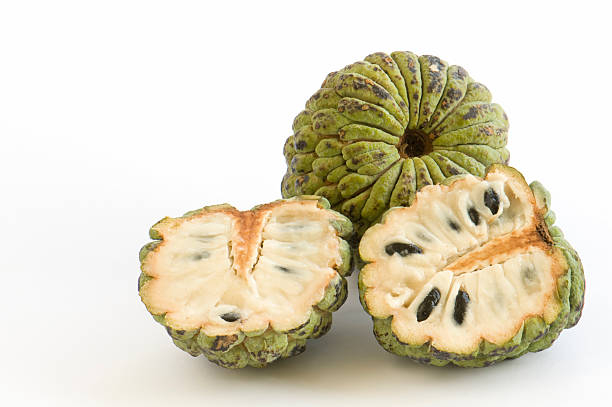
May prevent high blood pressure 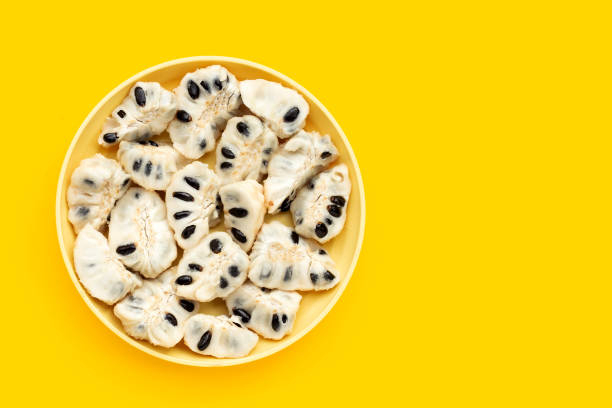
May prevent high blood pressure -
One cup (160 grams) of cherimoya contains over 5 grams of dietary fiber, which is more than 17% of the RDI. Fiber gives weight to feces and helps it pass through your intestines since it cannot be digested or absorbed. Furthermore, soluble fibers, such as those found in cherimoya, can feed the healthy bacteria in your stomach and ferment to form short-chain fatty acids (SCFAs). Butyrate, acetate, and propionate are examples of these acids.
SCFAs are energy sources for your body and may protect against inflammatory digestive diseases including Crohn's disease and ulcerative colitis. Cherimoya and other fiber-rich foods help boost digestive health by promoting healthy bowel motions and feeding gut microorganisms.
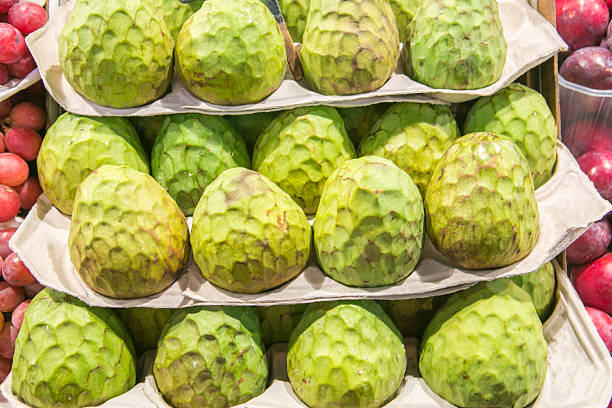
May promote good digestion 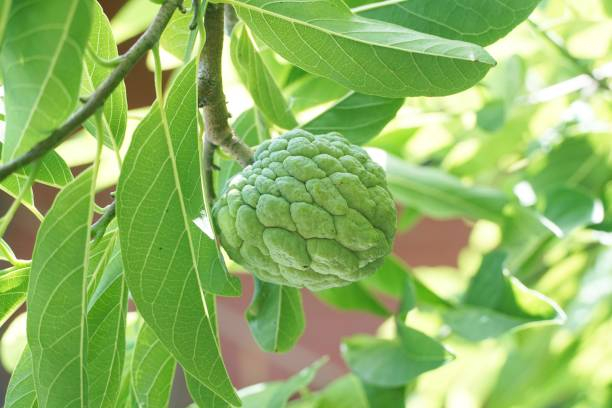
May promote good digestion -
Some of the substances found in cherimoya may aid in the battle against cancer. Cherimoya includes flavonoids such as catechin, epicatechin, and epigallocatechin, which have been demonstrated in test-tube tests to inhibit cancer cell proliferation. According to one study, treating bladder cancer cells with epicatechin resulted in considerably less cell growth and replication than cells that did not get this flavonoid. Another test-tube study discovered that various catechins, including those found in cherimoya, inhibited up to 100% of breast cancer cell development.
Furthermore, population studies show that people who consume diets high in flavonoids have a decreased chance of acquiring specific malignancies, such as stomach and colon cancer than persons who consume diets low in these components. More human research is needed, however, to completely understand how the chemical present in cherimoya and other fruits affects cancer.
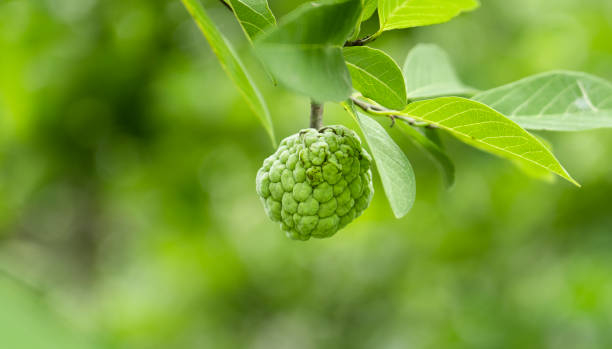
May have anticancer properties 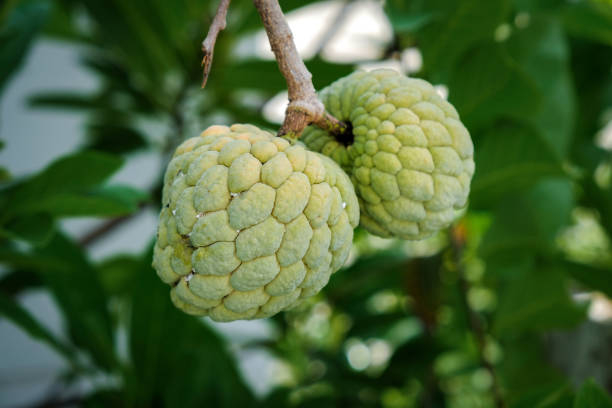
May have anticancer properties -
Chronic inflammation has been related to an increased risk of a variety of diseases, including heart disease and cancer. Notably, cherimoya has anti-inflammatory chemicals such as kaurenoic acid. This acid has potent anti-inflammatory properties and has been proven in animal experiments to reduce specific inflammatory proteins. Furthermore, cherimoya contains catechin and epicatechin, flavonoid antioxidants that have been shown in animal and test-tube tests to have potent anti-inflammatory effects.
According to one study, mice fed an epicatechin-enriched diet exhibited lower blood levels of the inflammatory marker C-reactive protein (CRP) as compared to a control group. High CRP levels are linked to atherosclerosis, a hardening, and narrowing of the arteries that raises your risk of heart disease dramatically.
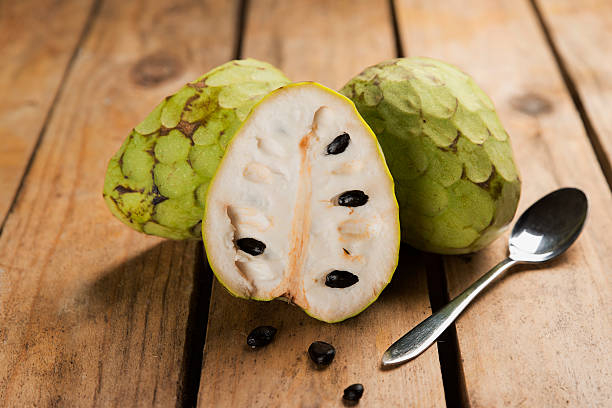
May fight inflammation 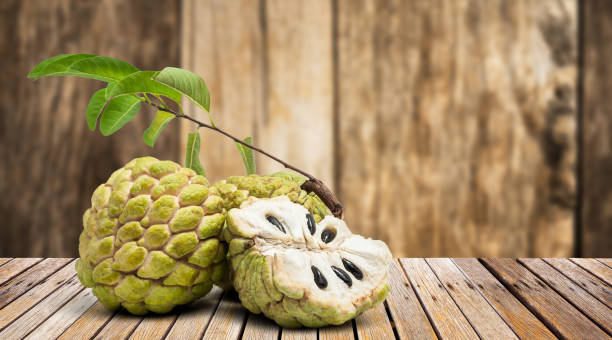
May fight inflammation -
Back on more firm footing, cherimoya fruit is unquestionably beneficial to your skin. The fruit is high in vitamin C, which is important for anybody looking to improve the appearance and health of their skin. Vitamin C has inherent antioxidant effects and is essential for collagen formation.
Collagen is a protein that keeps the skin healthy, robust, and elastic. And there's more good news on the way, especially for your age. Cherimoya fruits, due to their antioxidant activity, can help reverse some of the effects of aging. By including this delectable fruit on your list, you may say goodbye to wrinkles, blemishes, and age spots.
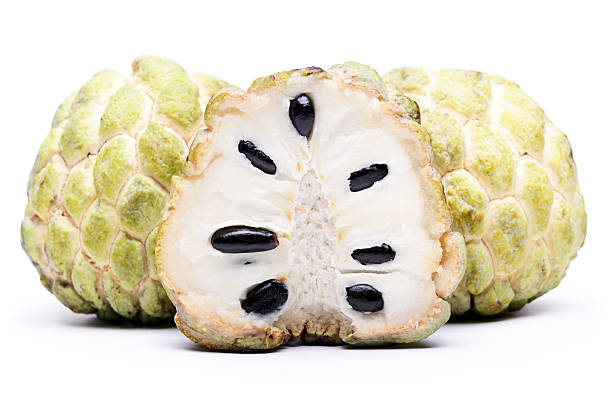
Benefit skin health 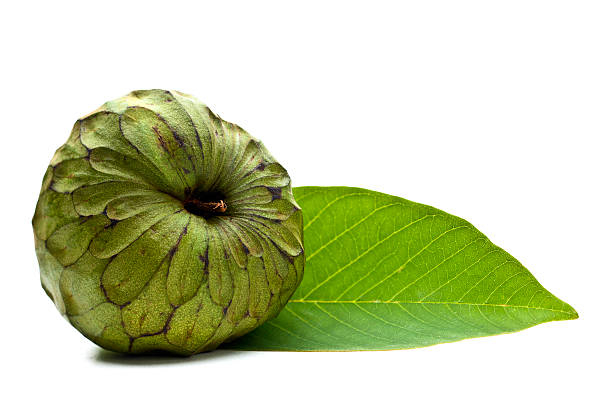
Benefit skin health -
With heart disease being one of the world's leading causes of death, whatever you can do to protect your hearts' health should be a top concern. Fortunately, cherimoya includes many of the minerals required to keep your heart healthy. Vitamin C is a well-known antioxidant that can reverse free radical damage. It protects lipids from assault, which helps maintain cholesterol levels under control.
Cherimoya also has soluble fiber, which has been linked to improved cardiovascular health. Fiber can help to prevent cholesterol absorption in the intestines. Fiber has been shown in studies on diabetes people to help lower LDL cholesterol while increasing HDL cholesterol.
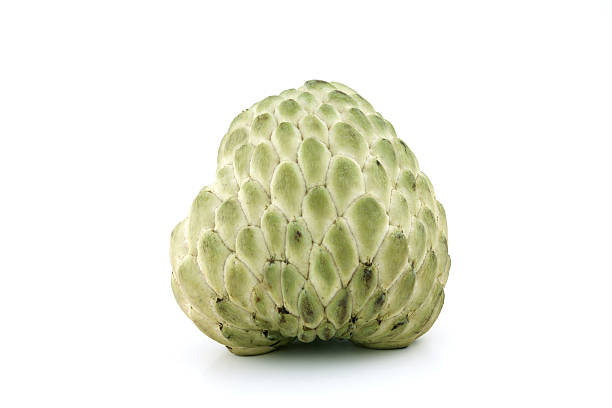
Benefit heart health 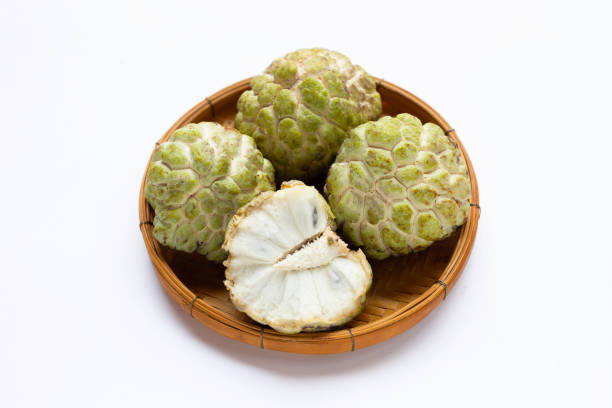
Benefit heart health -
Cherimoya, like other tropical fruits, is high in vitamin C, a mineral that boosts immunity by combating infections and illness. A lack of vitamin C has been related to weakened immunity and an increased risk of illness. Human studies show that vitamin C may help shorten the duration of the common cold. However, data is contradictory, with the majority of studies focusing on supplements rather than dietary vitamin C.
Consuming cherimoya and other foods high in this vitamin is a simple method to maintain good immunological health. Fiber can help to prevent cholesterol absorption in the intestines. Fiber has been shown in studies on diabetes people to help lower LDL cholesterol while increasing HDL cholesterol.
Collagen is not only good for your skin, but it is also good for your hair. Your hair and scalp are mostly composed of collagen, and the vitamin C in cherimoya plays an important role in its creation. Cherimoya is available as seed oil and is ideal for thick, coarse, or wavy hair. It also moisturizes the scalp and promotes lustrous, healthy-looking, and manageable hair.
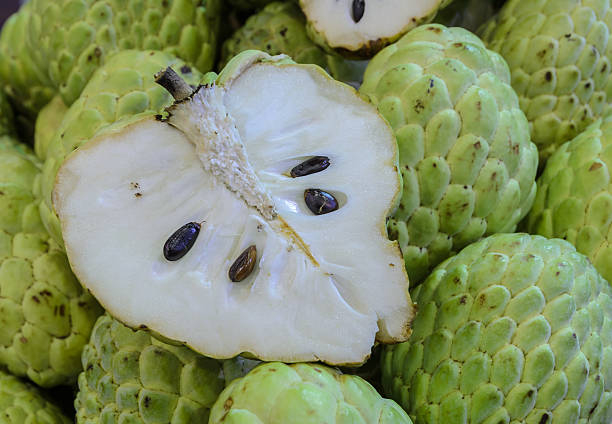
May support immunity and hair health 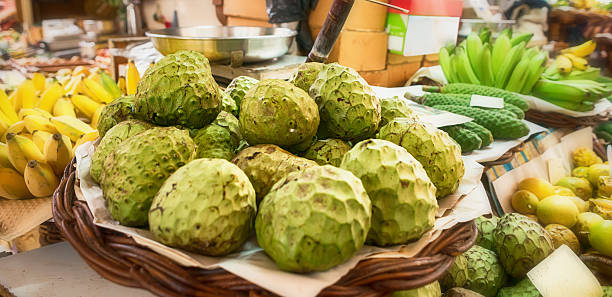
May support immunity and hair health































